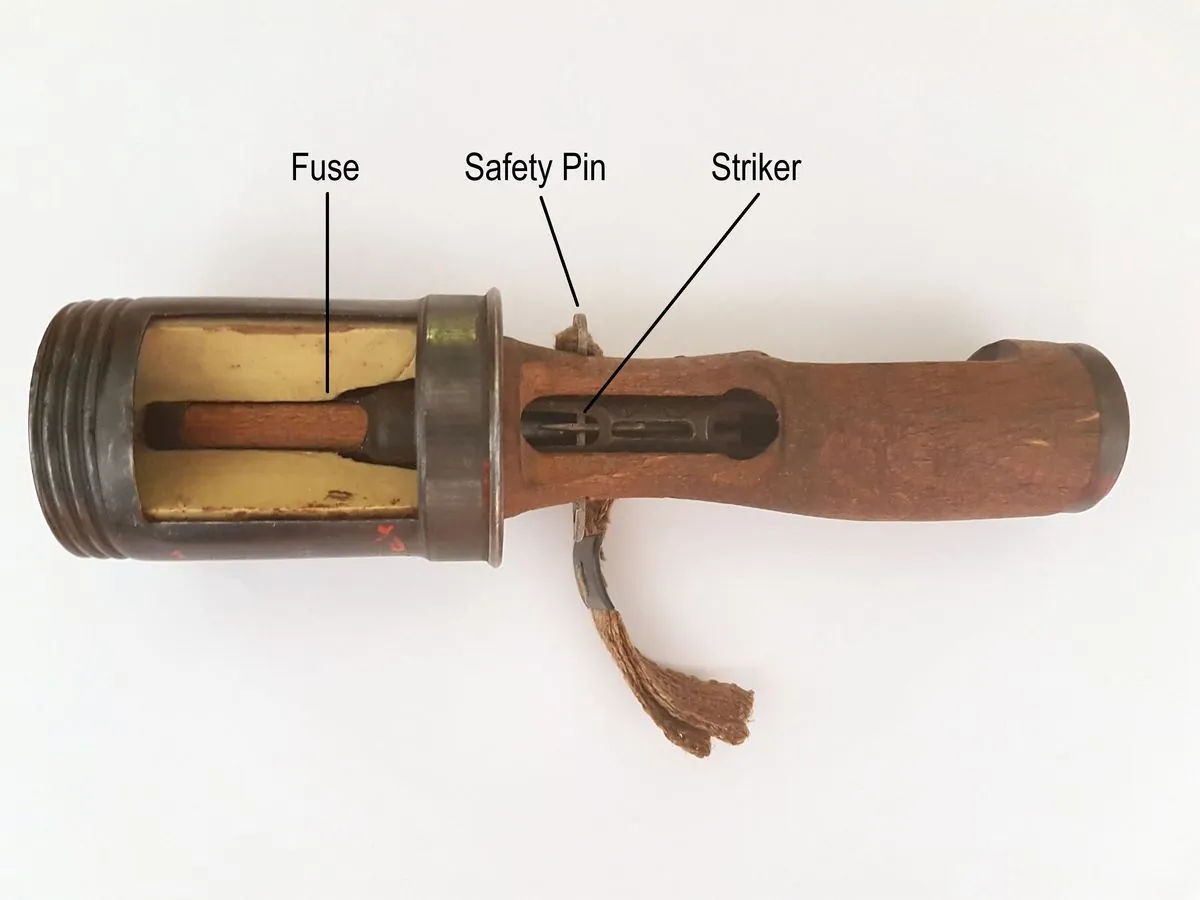Live WWII Grenade Sparks Evacuation in Welsh Village
A military artifact collector's accidental purchase of a live Hungarian stick grenade from World War II led to a neighborhood evacuation in Mid Wales. The incident highlights the ongoing dangers of unexploded ordnance.

In a startling incident in Llansantffraid, Powys, Mid Wales, residents were compelled to leave their homes after a collector inadvertently acquired a live Second World War grenade. Kallum Williams, a 23-year-old enthusiast of decommissioned military artifacts, found himself at the center of an unexpected ordeal when a Hungarian stick grenade he purchased turned out to be potentially explosive.
The grenade, advertised as deactivated, raised alarm bells when Williams noticed it contained what appeared to be explosive powder. "It felt like a salt shaker," he remarked, highlighting the unsettling discovery. Promptly alerting authorities, Williams and his neighbors endured a tense night awaiting police response.

Upon arrival, law enforcement established a safety cordon and initiated evacuations. An Explosive Ordnance Disposal (EOD) team conducted an X-ray examination, confirming the presence of powder within the device. Subsequently, the grenade was transported to a field for controlled detonation, with Williams reporting, "We heard the explosion."
This incident underscores the persistent dangers associated with World War II artifacts. Unexploded ordnance from this conflict continues to surface across Europe, with an estimated 300,000 tons still unaccounted for. The Hungarian stick grenade, known as the 42M, was a common weapon during the war, and properly decommissioned versions typically feature drill holes to render them inert.
Williams expressed remorse for the disturbance caused to his neighbors, emphasizing that his collection poses no risk to the community. The event serves as a stark reminder of the importance of proper verification when dealing with military artifacts.
"Officers attended with an explosive ordnance disposal team and the device, a small inert hand grenade, was destroyed in a controlled manner."
This occurrence in Wales echoes a larger-scale event from seven months ago in Plymouth. In February 2024, one of Britain's most extensive peacetime evacuations took place when a half-ton Second World War bomb was unearthed in a residential garden. The explosive, dropped by the Luftwaffe 85 years prior, necessitated a complex three-day operation culminating in its detonation at sea.
The Plymouth incident, described by the Ministry of Defence as "one of the largest UK peacetime evacuation operations since the Second World War," involved thousands of residents and brought parts of the city to a standstill. It serves as a poignant reminder of the lasting impact of wartime ordnance on contemporary life.
As military artifact collecting gains popularity, enthusiasts and authorities alike must remain vigilant. The UK Ministry of Defence maintains specialized teams to handle historic ordnance, reflecting the ongoing need for expertise in this field. While collecting inert ordnance can preserve military history, the potential risks associated with improperly deactivated items cannot be overstated.
These events in Llansantffraid and Plymouth highlight the enduring legacy of World War II and the importance of cautious handling of historical military items. As unexploded ordnance continues to be discovered, public safety remains paramount, necessitating swift and coordinated responses from law enforcement and disposal experts.


































